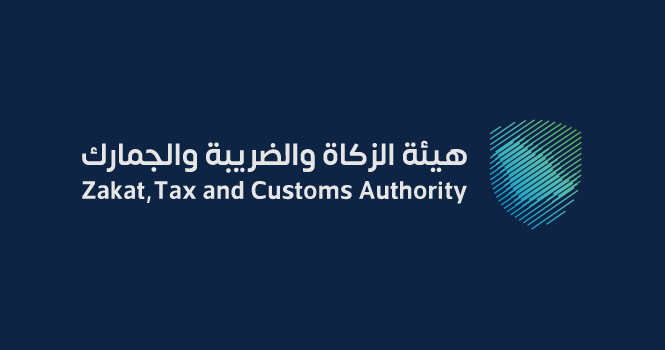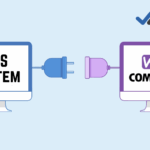
Introduction
In recent years, Saudi Arabia has been on a transformative journey, not only economically but also technologically. One of the remarkable advancements in this transformation is the ZATCA e-Invoicing system. ZATCA, which stands for Zakat, Tax and Customs Authority, introduced this change to simplify tax compliance, increase transparency and promote digitalization. E-invoicing is a process designed to create invoices in electronic or digital format. The Zakat, Tax and Customs Authority (ZATCA) in the Kingdom of Saudi Arabia (KSA) has announced that e-invoicing is mandatory for all VAT-registered businesses in the Kingdom of Saudi Arabia starting on 4 December 2021.
This means, now every business has to generate the invoices digitally, they cannot generate or store the invoices on paper or in PDF format only. In this way, ZATCA will ensure that taxes are correctly identified, deducted, and reported on all electronic transactions. In this article, we examine the complexities of ZATCA e-invoicing and explore how it is reshaping the financial transaction and tax landscape in Saudi Arabia.
Why is e-invoicing being introduced in KSA?
Before the introduction of ZATCA e-Invoicing, traditional invoicing methods in Saudi Arabia were complex and often led to inefficiencies and errors. Authorities faced difficulties in accurately tracking transactions due to the widespread use of paper-based invoices. Tax evasion and fraud were significant concerns, and businesses had a tough time dealing with the manual paperwork, which slowed down productivity and held back growth. This is where ZATCA e-Invoicing came in as a game-changer. Electronic transfers will help reduce the administrative burden on businesses, improve compliance and increase transparency. It will also help the government keep track of companies and their activities.
How ZATCA e-Invoicing Works
ZATCA e-Invoicing is a comprehensive digital platform that automates the invoicing process for businesses in Saudi Arabia. Here’s how it works:
1. Create e-Invoice: Businesses create digital invoices using the ZATCA e-Invoicing system. These invoices are structured according to the specific format mandated by the authority They contain all the necessary details such as seller and buyer information, invoice amount, VAT amount and registration number.
2. Send to ZATCA: Once the electronic invoice is created, it will be sent to ZATCA instantly. This submission ensures that the tax authority has access to all relevant financial transactions, reducing the likelihood of tax evasion.
3. Validation and Approval: ZATCA’s system checks the submitted invoices for accuracy and compliance with tax regulations. If everything goes well, the invoice will be approved and stored in the ZATCA database.
4. Issuance of QR Code: ZATCA generates a unique QR code for each approved e-invoice. The code acts as a digital fingerprint, allowing businesses and authorities to verify the authenticity of the invoice.
5. Electronic Archiving: All approved electronic documents are stored electronically, eliminating the need for physical storage. Businesses can access their invoices whenever they want through the ZATCA portal.
6. Integration with Accounting Software: Many businesses have integrated ZATCA e-invoicing into their accounting software to make the process seamless. This integration ensures that all financial information is accurate and up-to-date.
Benefits of ZATCA e-Invoicing
The introduction of ZATCA e-invoicing brings many benefits to the business and government of Saudi Arabia:
1. Enhanced Tax Compliance: With real-time submission and validation of invoices, tax evasion has significantly reduced. This not only increases government revenue but also creates a fair playing field for businesses.
2. Reduction of Administrative Work: Since the time-consuming data management and reporting process is eliminated, businesses can now focus on their core business.
3. Improved Accuracy: The automated system reduces the chances of errors in invoicing, ensuring that businesses report accurate financial data to ZATCA.
4. Transparency: ZATCA e-Invoicing increases transparency in financial transactions. Both businesses and government authorities have access to a clear, standardized record of all transactions.
5. Cost Savings: The elimination of paper-based invoices and manual processes results in cost savings for businesses.
6. Faster audits: Auditors can quickly access electronic invoices, speeding up the audit process and reducing business interruptions.
7. Green Initiative: Going digital reduces paper usage, contributing to environmental sustainability.
Conclusion
ZATCA e-Invoicing has become a game-changer in Saudi Arabia’s financial landscape. It has made tax compliance easier, improved transparency, and simplified invoicing for businesses, resulting in better efficiency and cost savings. As more businesses adopt this system, Saudi Arabia’s path towards a digital economy takes a big step forward, setting an example for others to follow. The ZATCA e-invoicing system proves that technological advancement can lead to greater progress, efficiency and transparency for businesses and governments in the future.






